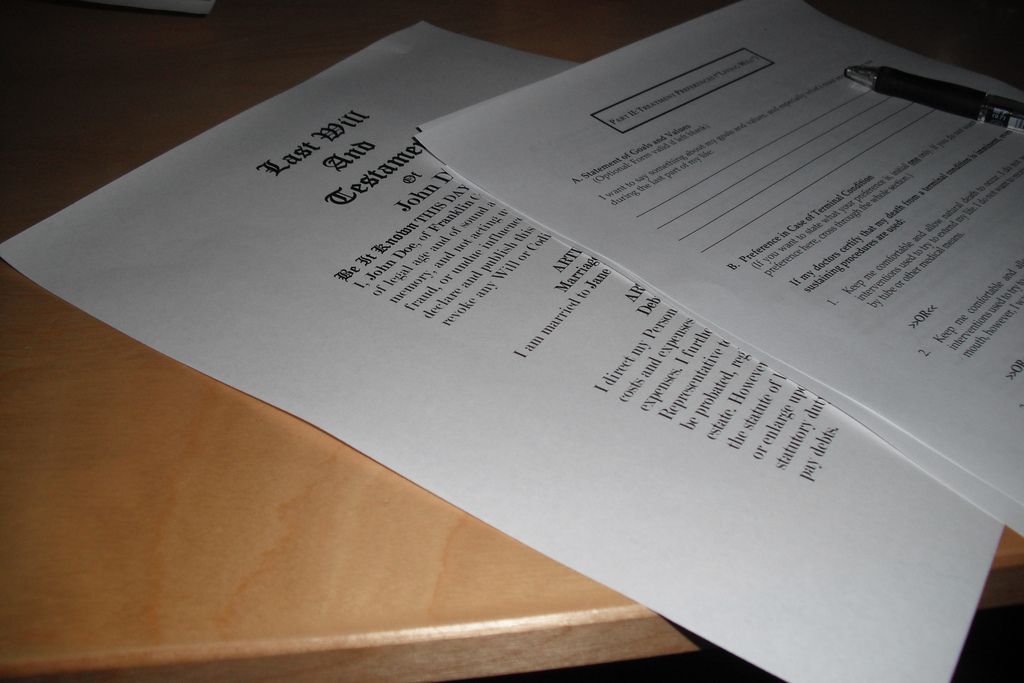Five Tips For Making Your Will
A recent study by Will Aid revealed that nearly half of people without a Will say they just haven’t got round to it. Are you in that category? Most of us without a Will wrongly assume that everything will somehow fall into place, that those we feel should inherit, will inherit, or that we simply don’t have much to leave behind anyway. In reality, things go awry and lead to unnecessary family upset or hardship. Making a Will isn’t as hard or expensive as you might think, so here are five tips to get you started:
1. Make a List of Your Assets
Before you can decide who gets what, you need a comprehensive list of all you own. Your solicitor (or whoever else draws up the Will) needs to know things such as:
- What savings, property or investments you own. Don’t forget overseas property.
- Who you want to inherit those assets.
- What provision you want for minor children.
- Who will be your executors.
- What arrangements you’d like for your funeral – such as burial or cremation, or what music you’d like.
Discuss your thoughts and options with family or partners to pool ideas and keep everyone informed.
2. Choose Your Will Writing Method
For all but the very simplest of Wills, it’s best to use a solicitor with probate experience. They will be able to advise on your affairs and point out any consequences or considerations you may not have considered. For instance, what the tax liabilities might be under certain bequests, or how tax and benefit issues might affect the livelihood of those you leave money or possessions to.
Other ways to make a Will include using online services, some of which offer to have your Will looked over by a Will specialist. Be aware that Will writing is unregulated, so make sure the service you use is a member of The Institute of Professional Will Writers.
Banks will also help with Will writing, and like Solicitors may also include executor services for administering paperwork and carrying out your wishes. It’s prudent to check charges since discount Will writing fees may lead to higher executor fees.
Executors can also be family members or friends, but be sure to discuss this option with them beforehand. You can have more than one executor, so you could use a combination of a solicitor and a friend, especially if there’s anything complicated in your Will that friends might have difficulty dealing with or understanding.
3. Make Provisions for Children and Partners
In your Will you can stipulate who will take over guardianship of children under eighteen, looking after their daily needs as well as their financial interests. You can also set up trusts for children if you feel they won’t cope after inheriting at eighteen.
Pay particular attention to stepchildren, who don’t automatically inherit but must be named in your Will if they are to share in your estate. Unmarried partners or those not in civil relationships have no right of inheritance either. If this describes your family relationship, you should make a Will that includes partners.
4. Consider Charitable Donations
Leaving a legacy to a charity in a Will is popular, and many charities rely on legacy gifts to carry out their work. It’s as easy as naming any other beneficiary; you just need to make sure you name them properly since several have similar sounding names. Including the charity registration number and address is a good idea.
5. Keeping Your Will Safe
Your bank or solicitor will store your Will for you, but ask about fees at the bank. One caveat to keeping it at a bank is to not store it in a bank deposit box. The bank can’t open the box, without probate neither can the executor, and without the Will there can be no probate.
You can lodge your Will with the Probate Service for a small fee, or you could keep it yourself at home. There is no law that stipulates where you keep it. Just make sure it’s safe and that your executor knows how to get it.
You are never too old or too young to make a Will. If you’re among those who haven’t got round to it yet, doing so will bring peace of mind to yourself and your family.



